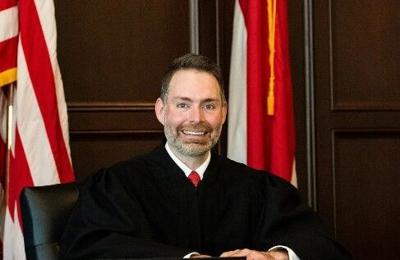
Richard Dietz
RALEIGH, N.C. – North Carolina courts are free to interpret actions by state agencies however they may, following a recent ruling by the state Supreme Court.
An Oct. 17 ruling resembles what the U.S. Supreme Court did last year when it struck down what is known as the “Chevron deference.” That doctrine forced courts to defer to a federal agency’s interpretation of an ambiguous statute, as long as it was reasonable.
North Carolina’s justices were asked whether the firing of a Winston-Salem State University professor was fair. The Court of Appeals had held courts must “defer to the agency’s interpretation of its regulations unless it is plainly erroneous.”
That’s not the case, Justice Richard Dietz wrote. He cited a 1998 ruling declaring a court can substitute its judgment for that of the state agency.
“(A) state agency’s interpretation of its own rules and regulations can inform a court’s judgment and aid in ascertaining the meaning of the law,” Dietz wrote. “But the agency’s interpretation is never binding.
“We expressly disavow any interpretive rule requiring courts to defer to a state agency’s interpretation of state rules and regulations, overrule any previous Court of Appeals case law to the contrary, and instruct all lower courts to apply traditional de novo review to the interpretation of state rules and regulations.”
Alvin Mitchell was fired after complaints of incomplete grading, not teaching one of his classes and a letter to a colleague that contained racial slurs. He appealed his termination to the University of North Carolina Board of Governors but lost – as he then did in a trial court and the Court of Appeals.
Mitchell argued Winston-Salem State failed to follow its own rules regarding firing tenured professors, but those courts deferred to the Board of Governors’ interpretation of its rules.
Justice Anita Earls, a former civil rights attorney, dissented in part, saying the university followed its clear termination procedures. Those policies, she said, weren’t ambiguous, and the majority went beyond “the narrow issue presented by this appeal.”


